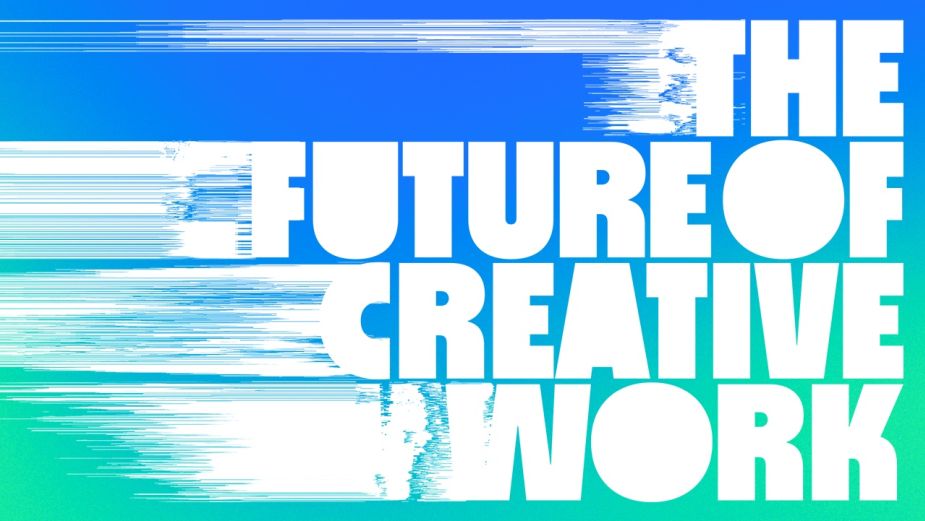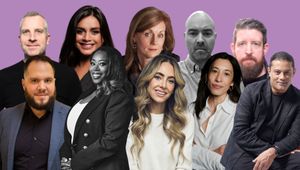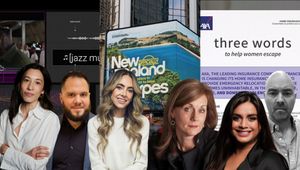
How You Can Help TBWA Determine the ‘Future of Creative Work’

How good can our industry’s creative work get if the creative work culture sucks?
This provocation is at the heart of a new survey from TBWA, in which the agency is looking at the future of creative work - and they want your help in the process.
More than two years of remote working have disrupted how we live, work, and create. Driven by an ambition to continue to attract and train the best creative talent for the advertising industry at large, a team at TBWA, led by chief strategy officer Agathe Guerrier, have been working on the ‘Future of Creative Work. The team has been conducting research to gather information on the seismic shifts impacting the culture of work, especially the culture of creative work, so that the advertising industry can create a better way forward.
“As we look to open the aperture on the creative canvas and broaden our thinking on where creativity can play a role in today’s world,” says Ben Williams, global chief creative experience officer at TBWA\Worldwide, “we also need to broaden our aperture on what creative talent we need to deliver on that ambition. We know creativity can solve a whole lot more than just marketing problems, so we need to attract, retain and nurture creative talent from a wide range of backgrounds, disciplines and crafts. That also means anyone who works for a creative agency or participates in the creative process, not just people with ‘creative’ in their job title.
Ben cites big tech’s “hoovering up” of creative talent over the last decade or so, and believes that it’s high time the advertising industry looks at its own proposition to creatives. “And build an environment and working model that is truly built for the future, to inspire and develop creativity from a broader cast of creative people,” he says.
TBWA’s work so far has led the agency to formulate some early hypotheses, such as:
- Daily enablement and empowerment 'trumps' milestone moments (onboarding, annual reviews)
- When the rubber hits the road, gen Z cares a lot more about compensation and work-life balance than they do about values and ethos
- Burnout has more to do with lack of autonomy than with workload
“We are in the early stages of the research and have not seen all the responses yet, but there are some early trendlines that we’re following,” says Ben. “As creatives, we know the importance of ‘flow state’. It’s hard to define, it’s often hard to manifest on demand. It’s that illustrious state where everything seems easier, where one thought leads to an even greater thought and the creative process gives you that endorphin release that keeps you hooked as a creative.
“That state is hard to find, and even harder with a slew of interruptions from the technology we use throughout the day. While not necessarily surprising to hear, the daily distractions from password resets to security login loops to a seemingly endless barrage of notifications and their effect on the ability of people to find their flow state is eye-opening. “These realities have become part of the day-to-day for many of us, but taking a hard look at how we can better design around them to cultivate and maintain flow state for our industry is a great area to understand more about and design against.”
The team has just launched a large global survey of talent expectations and attitudes to validate or evolve these hypotheses. Their plan for the research is two-pronged:
- Using a quant survey tool, interrogate the gen pop of five key English-speaking markets (South Africa, Singapore, Australia, UK & US) – this part of the study is already done.
- Using their own networks, interrogate agency talent specifically – this is where TBWA needs you, dear readers!
If you’re at a creative agency in any role or in a creative role at a brand, tech or media company, TBWA wants to hear from you.
The survey should only take seven-eight minutes to complete, and your responses will be completely confidential. Results will be released at the Cannes Lions International Festival of Creativity on Monday, June 20th and will be shared with participants who opt to provide their contact information. The deadline for submissions is 27th May. You can contribute by clicking here.
“The next phase involves us collecting the responses, analysing them for themes and trends to hone in on key areas of focus to address,” adds Ben. “With that in mind, this research will allow us to hear from as many people as possible in the creative community, to aid us and our industry in designing a more inclusive, more sustainable and more vibrant creative work experience for the future.
“We want to use the information to look at our own working model, make the necessary shifts and adjustments to nurture creativity in all its forms, but also to ‘open-source’ the results and insights so we, as an industry, can collectively make the necessary shifts for the future.
“The more people we hear from, the better. Again, we want to design a future working model that ALL creatives can see themselves in. To do that, we need to hear as many voices as possible to define a better future for creativity and the way we all work.”
To contribute to the study, click here: https://www.research.net/r/futureofcreativework















